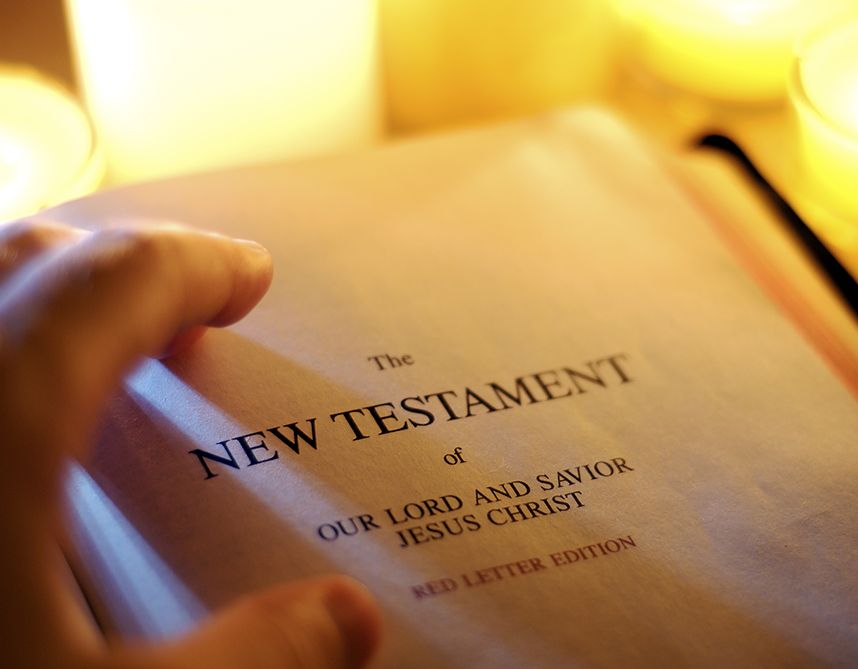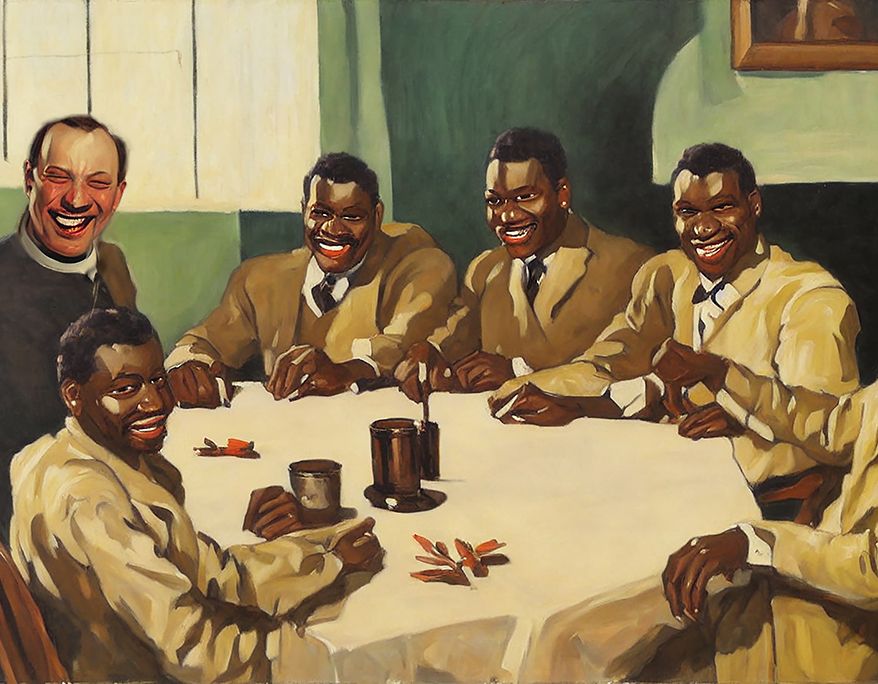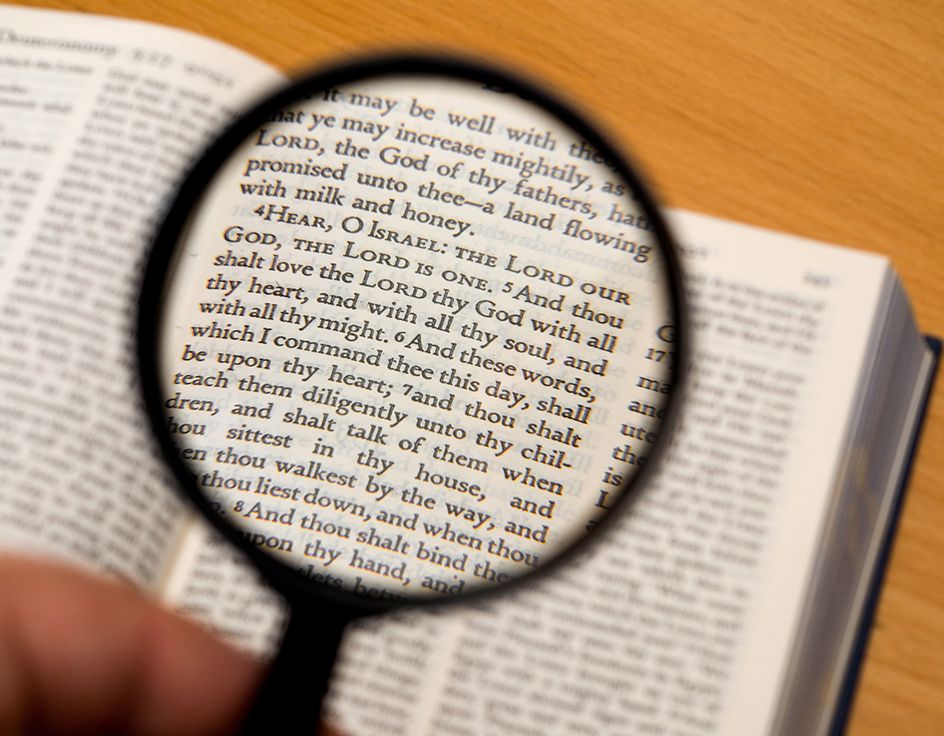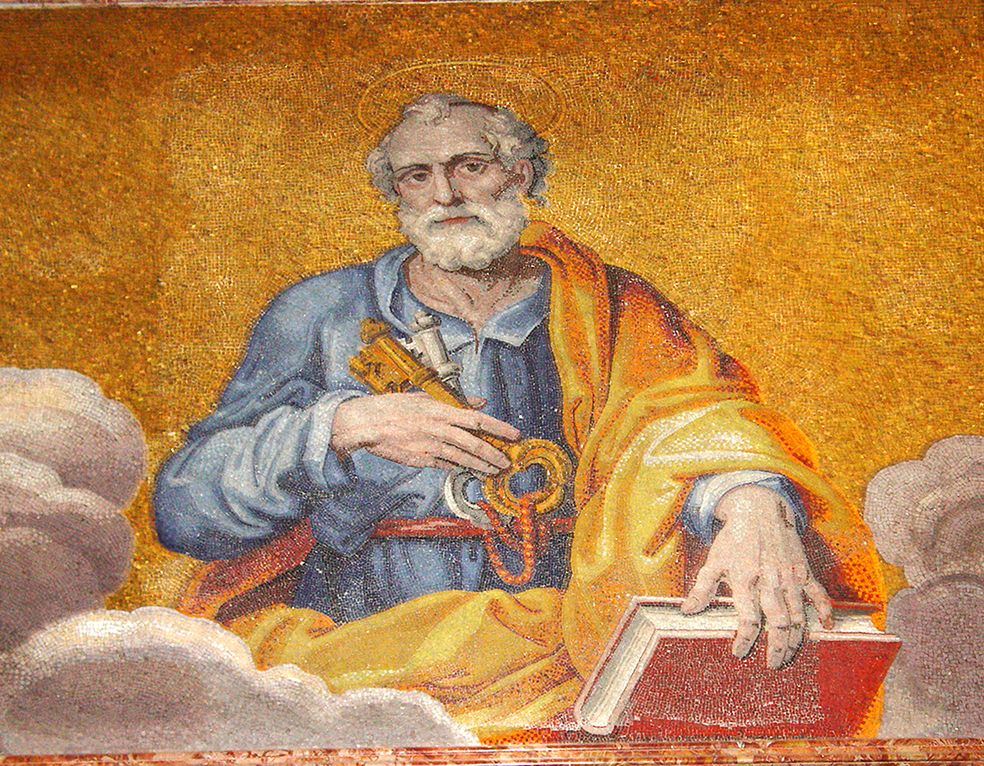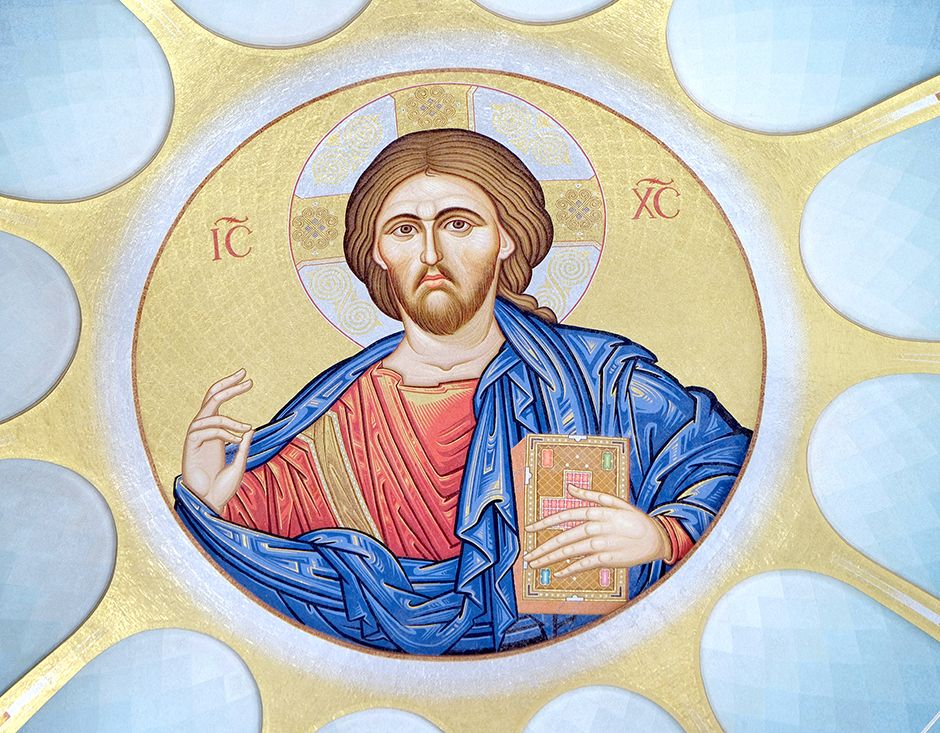Bible means “booklets.” The number of books in the Catholic Bible is 73: 46 for the Old Testament and 27 for the New Testament. This division between the Old Testament and the New Testament is present since the beginning and is typical of Christianity: it is there already in the text of the New Testament.
Jesus Christ is the hinge that keeps together the two Testaments; the hub that keeps all the books of the Bible together and gives unity to the Bible. “The New Testament is hidden in the Old, the Old is revealed in the New”: this is a famous sentence and principle stated by Saint Augustine.
The Church has inherited the Old Testament from the Jewish People. It was written before the birth of Jesus Christ. The New Testament was written during the time of the Twelve Apostles and by them. With the death of the last apostle, John, the Bible ends, since with Jesus Christ everything has been said. He is the incarnate Word, the definitive Word. The Twelve are the direct witnesses of his life, death, and resurrection.
The Three Stages
The point of departure is that the New Testament was written by the Apostolic Church. It is in the Bible itself (New Testament) that we find the explanation of the existence of the New Testament and the stages of its formation. What does the Bible say about the Bible?
It says that the first step in evangelization and the founding of the Church is the experience of Jesus by the Apostles. Saint John writes in his First Letter: “Something which existed since the beginning, which we have heard, which we have seen with our own eyes, which we have watched and touched with our own hands, the Word of life: this is our theme.”
And Saint Peter in his Second Letter, speaking of the event of the transfiguration, states firmly: “We ourselves heard God’s voice from heaven when we were with Jesus on the holy mountain.” The ordinary experience, based on the witness of the five senses: seeing, hearing, touching, tasting, and smelling, becomes an extraordinary experience after Jesus’ resurrection, but it is still based on the senses. It is the Risen Jesus himself who urges the disciples to touch him since he is not a ghost and he even eats some dry fish in their presence.
Yet, the experience of the senses must become faith, because experience touches man, but only faith touches God. It is faith that brings us into the presence of God. And the Risen Jesus is God. That is why Jesus tells Thomas who wanted to touch him and indeed touched him: “Stop doubting and believe!” And immediately Thomas uttered the most beautiful act of faith of the New Testament when he exclaimed: “My Lord and my God.”
The Last Stage
Jesus did not command the disciples to write, but he sent them to preach the Gospel to the whole world with the great commission that we find especially in the conclusion of Matthew’s gospel: “All authority in heaven and on earth has been given to me. Go, therefore, make disciples of all nations; baptize them in the name of the Father and of the Son and of the Holy Spirit and teach them to observe all the commands I gave you. And look, I am with you always; yes, to the end of time.”
After Pentecost, this is what the Apostle did: the Proclamation of the Gospel. Eventually, the Apostles and some of their disciples, under their supervision, put in writing their experience of Jesus Christ, because they knew that “Words fly away but what is written remains.” In this way, they followed the tradition that the prophets started, under God’s inspiration, and produced the Old Testament.
It is recorded in the book of Exodus, for the first time, that Moses himself put in writing the content of the Covenant with God, before reading it to the people and finalizing it by means of a solemn sacrifice. The blood of the sacrifice sealed the Covenant of Yahweh with his chosen people and made holy the “Book of the Covenant,” the first writing of what will become the Holy Scriptures.
The Scriptures were the pride of the people of the Old Testament, they were kept inside the Ark and were considered the best sign of the presence of God in their midst. They are the written record of the salvation history in its first stages and therefore they are essential also to us Christians.
Jesus himself taught the Apostles to read the Scriptures (the Old Testament) because they speak of him and his mission. Jesus Christ fulfills the promises of God and the expectations of the people of the Old Testament that are contained in the writings of the Old Testament itself as he points out to the two disciples of Emmaus, after his resurrection.

